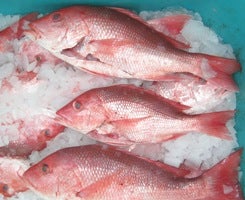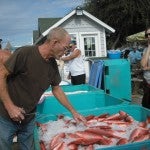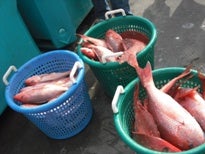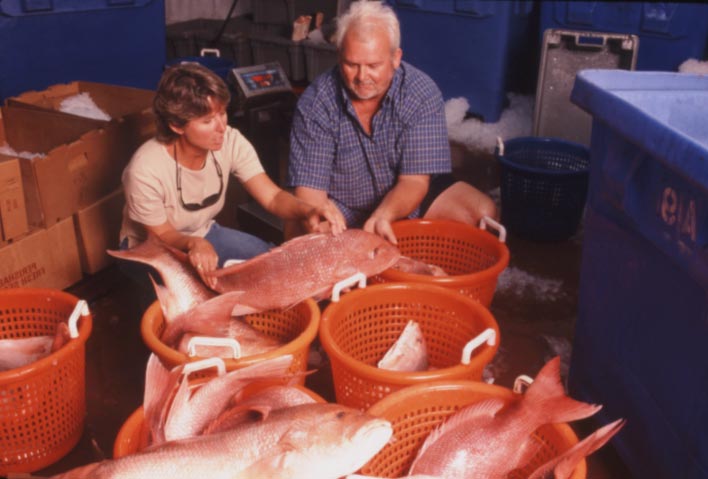
Last week the Gulf of Mexico Fishery Management Council’s Science and Statistical Committee updated its regional red snapper stock assessment and found signs that the population, though not recovered, is finally beginning to make a comeback. There is work ahead and many unknowns remain, but this looks like great news for fishermen, local communities and the environment.
At its February meeting, the Council will likely increase the quantity of fish that fishermen are allowed to catch. Commercial fishermen working under a successful red snapper management plan called an Individual Fishing Quota (IFQ) will have a good chance to be rewarded with more fish next year (and beyond). This sector poses little risk because fishermen are living within their catch limits, they have reduced the number of fish that must be thrown overboard dying to comply with closed season and size limit regulations, and they follow strict monitoring and accountability rules. At the same time, IFQ management has helped fishermen improve and stabilize dockside prices, reduce the costs to harvest fish, and provide higher quality fish to consumers.
On the other hand, it is less certain how the recreational fishery will fare. This is because the sector’s management plan is not working and fails to help anglers abide by their scientifically-safe catch limit. Any potential change in the amount of fish a sector is allowed to bring to shore must account for such past and anticipated overharvests. Read More










 At a recent meeting in Destin, FL, where members of our Gulf and South Atlantic teams met to discuss collaborative projects, I had the opportunity to see a commercial boat offloading its catch after a three day fishing trip. What an experience!
At a recent meeting in Destin, FL, where members of our Gulf and South Atlantic teams met to discuss collaborative projects, I had the opportunity to see a commercial boat offloading its catch after a three day fishing trip. What an experience!  When the largest paper in Texas (.42 million readers) puts catch shares on
When the largest paper in Texas (.42 million readers) puts catch shares on 
 Eight months after Hurricane Ike slammed Texas’ largest fishing community, Galveston is steadily recovering from the storm. Red snapper fishermen under IFQ management kept their businesses going because they could fish later in the year and lease quota to others when they couldn’t fish themselves.
Eight months after Hurricane Ike slammed Texas’ largest fishing community, Galveston is steadily recovering from the storm. Red snapper fishermen under IFQ management kept their businesses going because they could fish later in the year and lease quota to others when they couldn’t fish themselves.  January marked the second anniversary of the Gulf’s red snapper IFQ program. Fortunately, fishermen, regulators and environmentalists continue to report good news compared to the decade the fishery suffered under destructive derby management (also known as a “race” for the limited number of snapper that fishermen were allowed to catch each year).
January marked the second anniversary of the Gulf’s red snapper IFQ program. Fortunately, fishermen, regulators and environmentalists continue to report good news compared to the decade the fishery suffered under destructive derby management (also known as a “race” for the limited number of snapper that fishermen were allowed to catch each year).